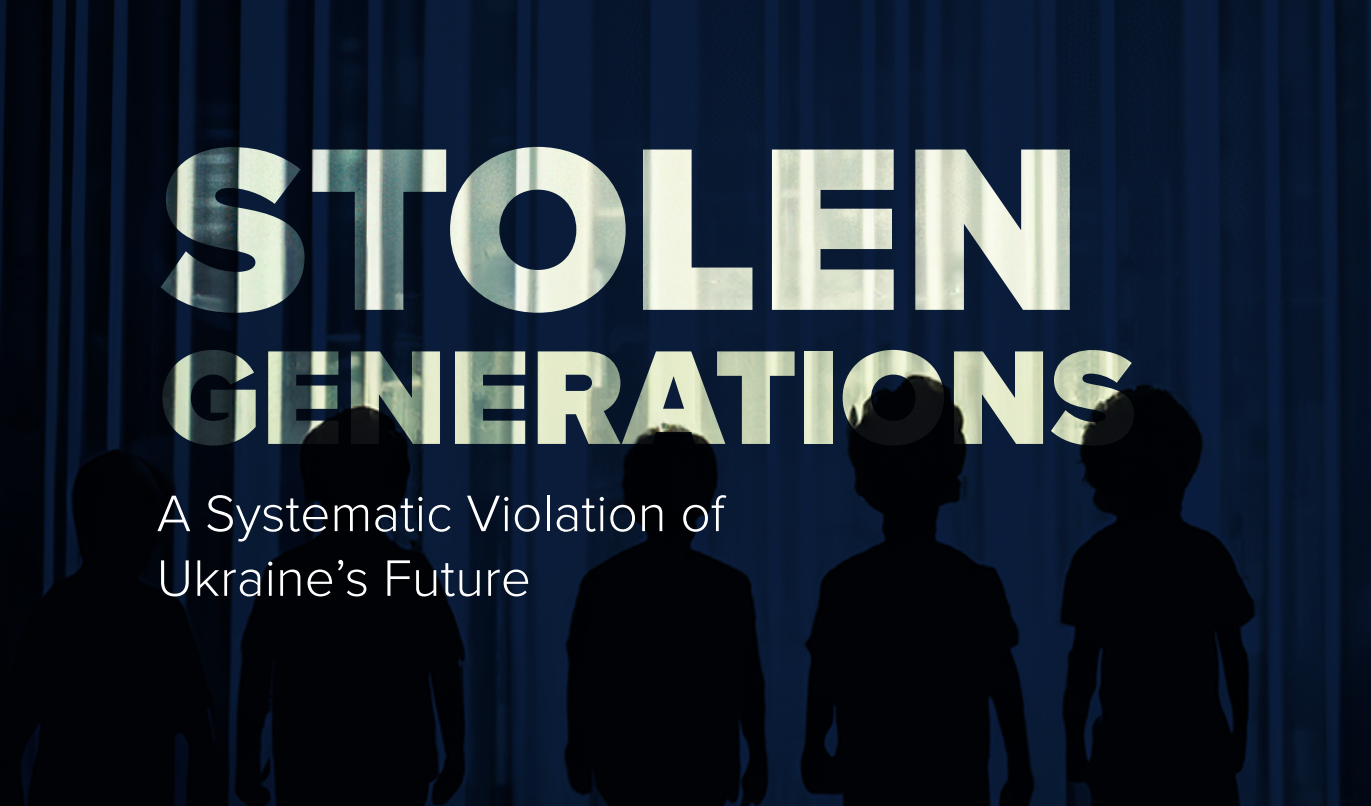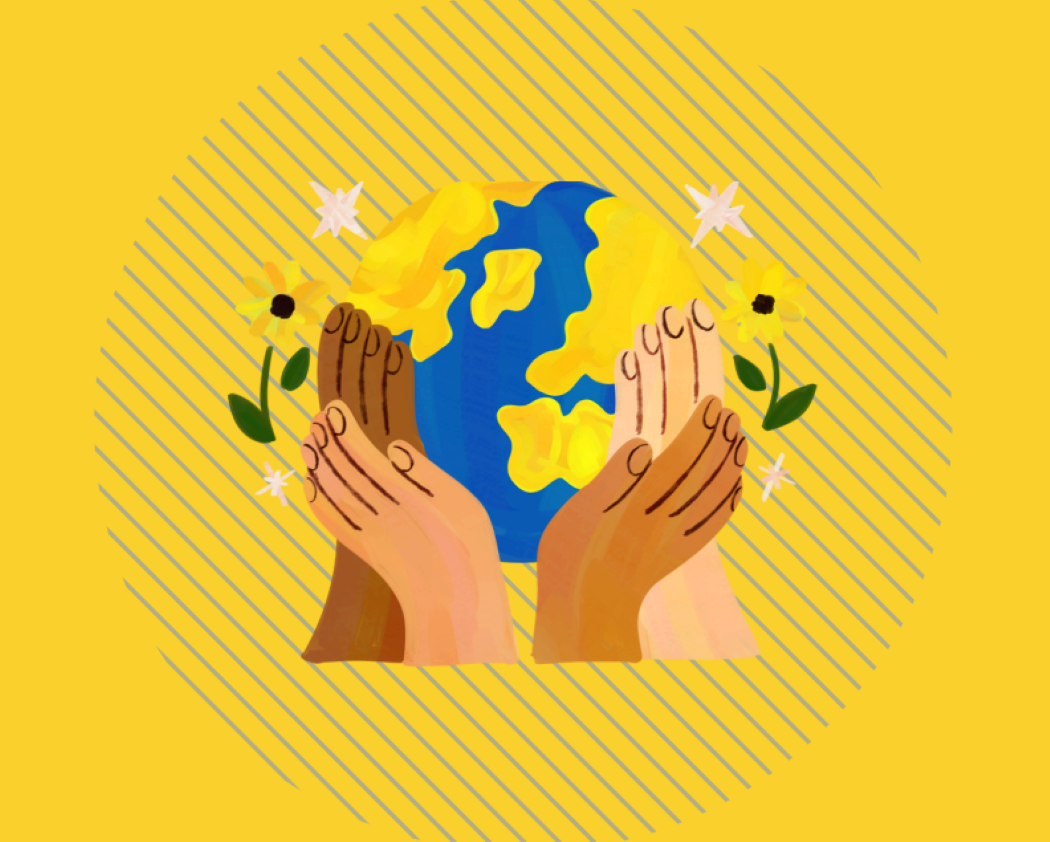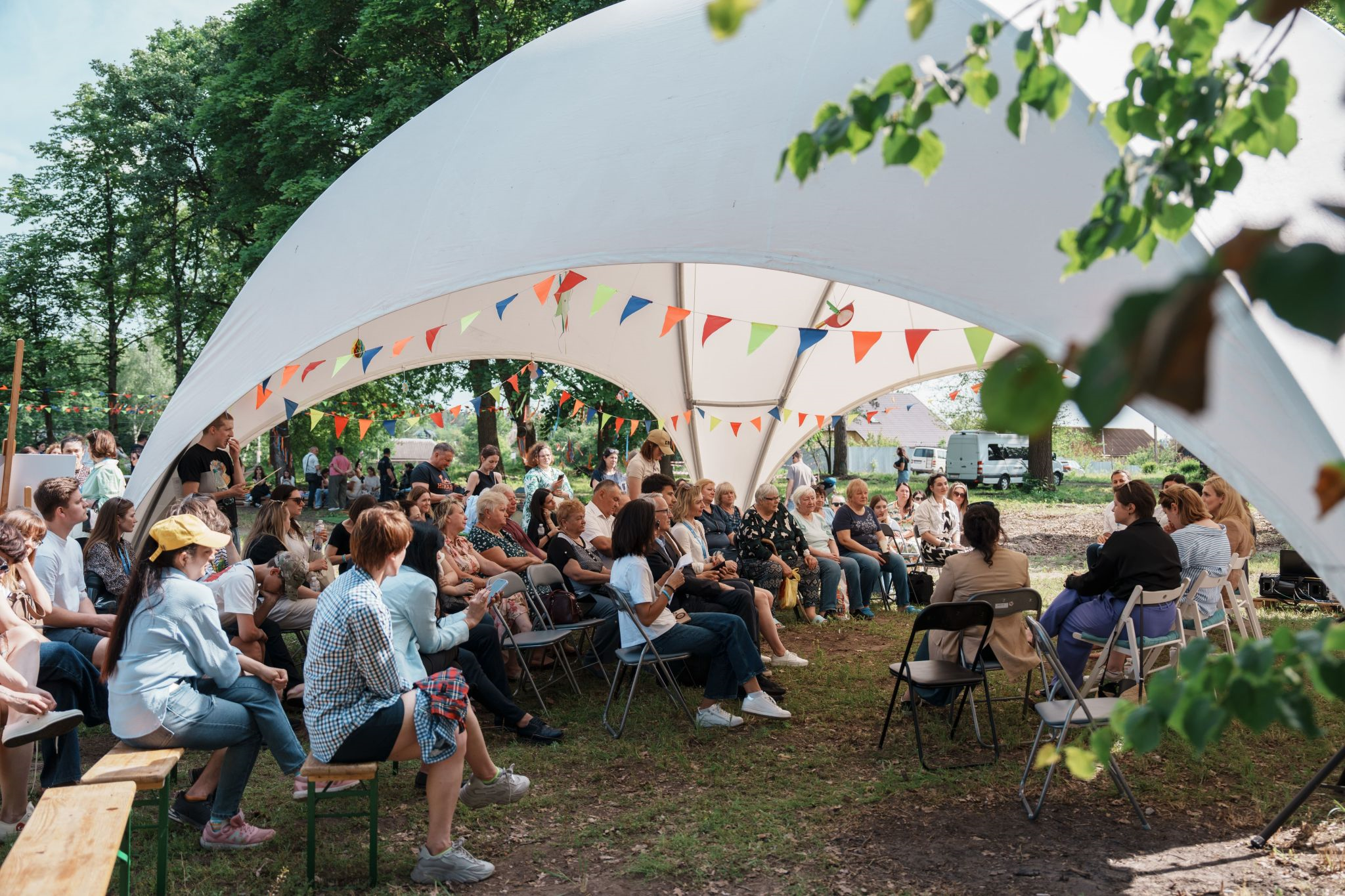Nowhere to go back to: how the war in Ukraine is separating children and families
Eurochild Portuguese member Sérgio Costa Araújo interviews Polina Klykova, Eurochild member from Kyiv on the situation in Ukraine. The full interview has been published on the Portuguese news site SAPO 24.
With the outbreak of the war child rights activist Polina decided to stay in Kyiv and give support to fellow citizens, distributing food, water, children's books, sleeping bags, etc. and work with local authorities when necessary.
- The Opening Doors Campaign drew attention to the needs of children deprived of parental care. Unlike the majority of European countries, in Ukraine, Bosnia and Herzegovina and Hungary, residential institutions are accepted as a good solution for families in poverty.
Poverty cannot justify the removal of a child from the family. In Ukraine, many of these children from a poor background live in institutions which function as boarding schools and they cannot be adopted. This fact drove the deinstitutionalisation reform in Ukraine – the need to strengthen community support to families and allow children to return to their families.
- With more than 100 000 children in institutions, Ukraine has one of the highest rates of institutionalised children in Europe. How has this vulnerable group of children been doing?
Children are mainly taken to Western Ukraine and to other European countries (mainly Germany and Poland), together with the personnel from these institutions. It is sometimes a painful experience for caregivers, since they are separated from their own families. Some of them managed to took their own children/grandchildren, but some believed that this situation would only last a few weeks. In the meantime the war continues; some towns have been totally destroyed – there is nowhere to go back.
Today, the war is the main reason why many families get separated. Men stay to defend the country, but many of their wives and children are displaced abroad or to safer regions of the country. Also, there are children losing their parents every day because of the war. We do not know, so far, how many families were torn apart by the war.
At even greater risk are children in need of palliative care and children with health problems, as access to medicines is limited in some regions. Neighboring countries showed a great deal of altruism by opening the borders so that people could be taken out of the war, but at the same time, the border guards did not demand that both parents allow the child to move to another country. This could lead to human trafficking.
Children are also at greater risk of being abused: domestic violence caused by high levels of stress; and particularly psychological abuse in the form of emotional abandonment.
- How many children were placed in institutions until the beginning of the war?
Before the reform of the system in 2017, 100,000 children lived in the institutions, with more than 90% having one or both parents, and none of these children had the status of “orphaned child” or “deprived of parental care”. 3,022 were identified as “orphaned children” living in institutions; in the same year and 6,880 “orphan children” were integrated into foster families.
In 2021 (the latest official data available), the government reported 77,000 children delivered to institutions, 42,000 returned to their homes because of the COVID-19 pandemic. Still, with the absence of community services, it is difficult to say whether children would be safe in their families and whether homes would be able to accommodate them.
- With the outbreak of the war, and according to the information you have, what was/is the fate of the children who were in the care system?
Children are taken to Western Ukraine (especially to the Ivano-Frankivsk region) and to other European countries (mainly Germany and Poland), together with the technicians of these institutions.
It is sometimes a painful experience for caregivers, they are also separated from their own families. Some of them were able and took their own children/grandchildren, but some believed that this situation would only last a few weeks, others simply did not have the opportunity to take their own family.
The children remain withdrawn. The war continues; the “rockets” continue to fall on the cities; and some regions are very destroyed, some small towns in Kharkiv, Chernigiv, Sumy, Kherson, Donetsk regions are totally destroyed – there is nowhere to go back; and fights happen every day. Other regions are also unsafe because of air attacks, mines, and the heightened risk of terrorist acts.
- Is there currently a monitoring system in Ukraine that allows locating and/or tracking these children?
All children with “orphaned” or “deprived of parental care” status remain under government control. Institution directors are responsible for the children they host, child protection services are responsible for children in foster families. Local authorities count children removed and have reports with information about their transfer. It's not a perfect tracking system, but at least it exists.
But it doesn't work for the rest of the kids.
It seems that it is difficult to learn from history. Both world wars triggered unimaginable impacts on children, and then governments spurred organizations to ensure conditions for the protection of children's rights.
But despite evidence that the war negatively affects children, they are currently off the Ukrainian political agenda. We didn't have any specific programs for children before the war (the last program on the implementation of the Convention on the Rights of the Child ended in 2021), and we haven't had any news since.
We had issues previously with the needs assessment. Currently, no child or family needs assessment is carried out. Local authorities do not know how many children there are in their territories. Therefore, it is not even possible to have regional plans.
- Until the outbreak of the war, what were the main challenges of the Ukrainian care system?
The lack of attention given to health workers. There are many cases in which the nurses themselves persuaded mothers to give up their child because, for example, the mother was considered too young or the child had a disability.
Government representatives and civil societies participated in the preparatory process for the reform and deinstitutionalisation documents but the heads of social support services and child protection centers did not. When faced with new guidelines on how to treat children and families without having a deep understanding of the reasons for this reform, some of them were very resistant. Finally, those who were against the reform shared false information: “Those who support deinstitutionalisation want children to live on the street”.
- This war has already turned into the worst refugee crisis in Europe since the Second World War. Countries such as Portugal have developed platforms to welcome and support Ukrainian families and children in a coordinated way. What reflection does this type of help provoke in you?
Welcoming refugees is a big challenge. When we welcome refugees into our families, we need to remember that they may be suffering because of their losses, the traumatic events they have experienced and therefore they might be able to express themselves in different ways. Setting some boundaries can be just as important as welcoming. Some refugees have never been outside their country. It is okay to explain how you live, what you are allowed or prohibited to do in your communities and provide different “how to…” guidelines (how to get access to medication; how to access the internet; how to use public transport, etc).
When it comes to welcoming unaccompanied children, it is much more complicated. Such decisions must never have an emotional background; the safety of the child and family must remain a priority. Therefore, based on an understanding of the child's background and to ensure their safety, child and youth protection services must remain involved and supervise host families.
Read the full interview (in Portuguese)
Crimes against children: visit the website managed by Polina
Photo: EPA/OLEG PETRASYUK





